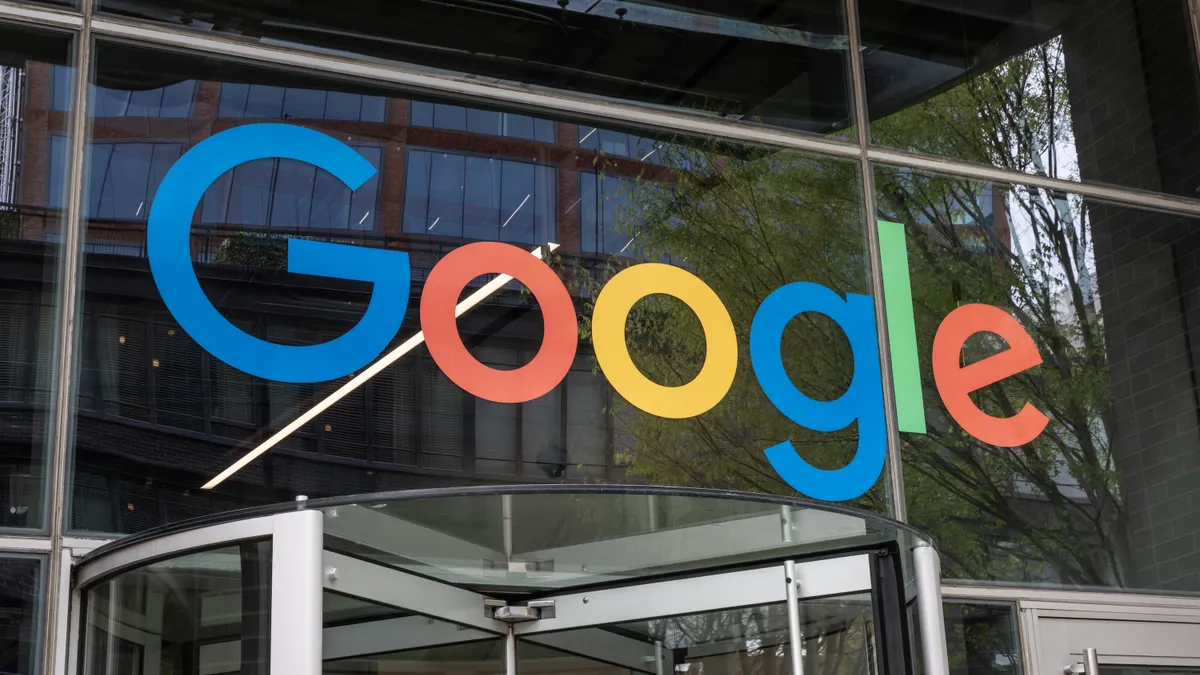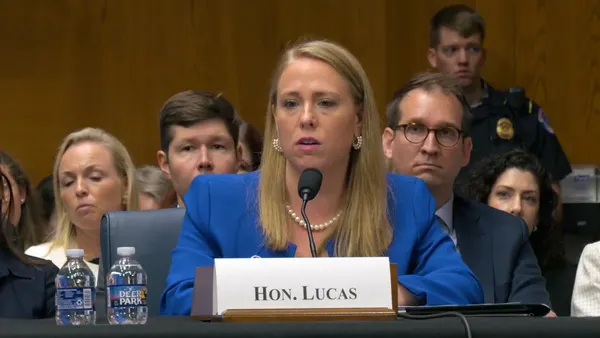Dive Brief:
- A group of former Google employees may proceed with claims that the company unlawfully retaliated against them following their participation in a protest against the company’s work with the Israeli government, a federal judge held Thursday.
- The employees in Anderson, et al. v. Google LLC staged protests at two Google offices — one in California and another in New York — on the same day in 2024. The protests targeted Google’s work for Israel’s military as well as alleged discrimination against its Palestinian, Arab and Muslim employees. Google terminated the plaintiffs, citing violations of its code of conduct and other internal policies.
- The plaintiffs claimed that Google violated Title VII of the 1964 Civil Rights Act by retaliating against employees for protected conduct, namely opposing Google’s alleged discrimination. They alleged similar violations of California, New York and Washington state laws. Judge Beth Labson Freeman denied Google’s motion to dismiss the plaintiffs’ Title VII claims but granted dismissal of some state-law claims.
Dive Insight:
Former Google and Amazon employees organized the protests, held under the title “No Tech for Apartheid,” in opposition to the companies’ cloud computing and artificial intelligence work for the Israeli military. The two firms signed a $1.2 billion contract with Israel in 2021 to provide those services as part of an agreement known as “Project Nimbus,” according to the Associated Press.
As part of the protests, the plaintiffs entered Google’s premises and were confronted by security before being arrested and removed, per court documents. The fallout of the protests resulted in the Anderson lawsuit and a charge filed last year with the National Labor Relations Board. The NLRB charge remains open, according to the agency’s website.
In its motion to dismiss, Google argued that the plaintiffs failed to adequately plead protected activity under Title VII because their complaint was not reasonable in view of Google’s “interest in maintaining a harmonious and efficient operation.” But Freeman held that “additional factual development is required at this stage in the proceedings” and that dismissal of the Title VII claims was not warranted.
Freeman similarly ruled with respect to the plaintiff’s state law claims except for claims under the San Francisco, California, police code and both New York City and New York state laws. The former claims are preempted by California’s Fair Housing and Employment Act, “which already prohibits both discrimination and retaliation on the same grounds,” Freeman said, whereas the latter two did not apply to the plaintiffs because none of them lived in nor worked for Google in New York.
Freeman noted that plaintiffs proposed adding plaintiffs residing in New York in a prior motion to file an amended complaint. In a Sept. 19 filing, the parties submitted a joint document to the court proposing a timeline that would permit the plaintiffs time to file an amended complaint and for Google to review and respond to the proposed amendments.
The case is one of several involving a technology company’s response to employee speech and conduct with respect to the Israel-Hamas war. In February, for instance, Intel and an Israeli former vice president of engineering agreed to dismiss a lawsuit alleging that the plaintiff was fired after a co-worker filed complaint on his behalf claiming that his supervisor expressed support for Hamas on social media.
In June, a Muslim Meta employee sued the company alleging it reprimanded him and threatened further discipline after he posted comments expressing solidarity with Palestinians in Gaza on employee forums. The parties later agreed to submit the case to arbitration, according to a July court filing.















